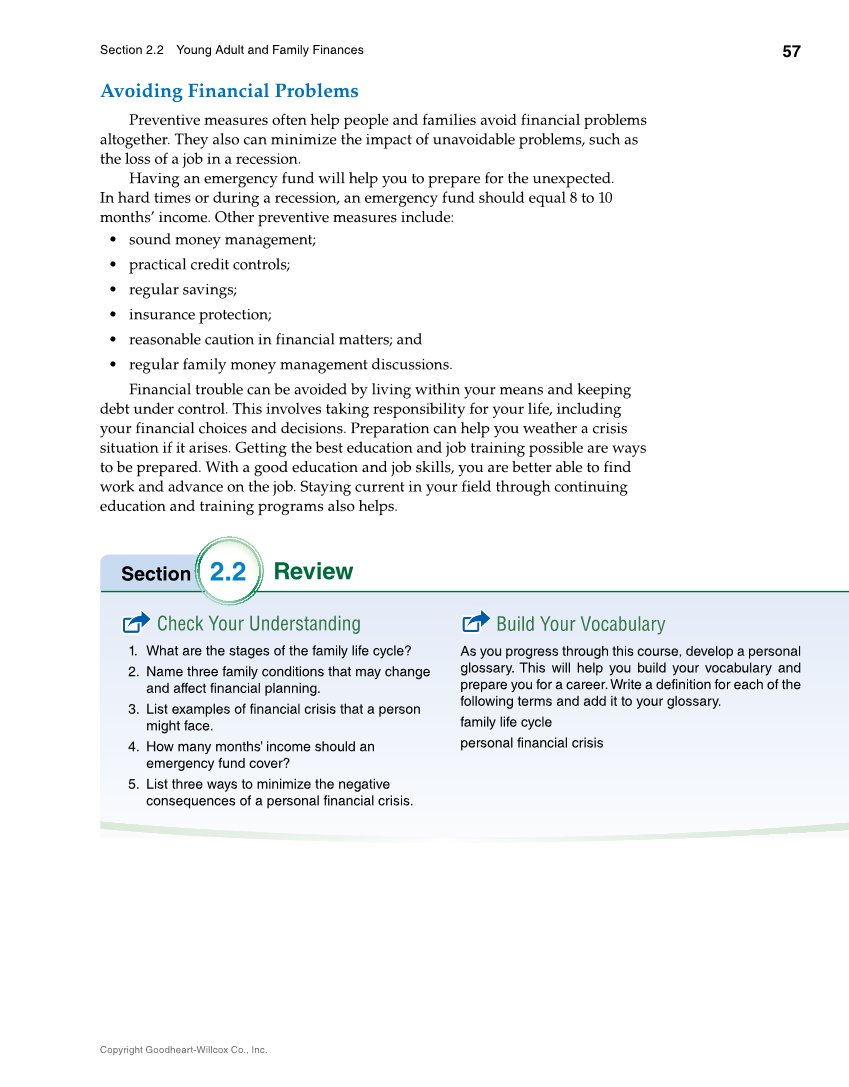Copyright Goodheart-Willcox Co., Inc. Section 2.2 Young Adult and Family Finances 57 Avoiding Financial Problems Preventive measures often help people and families avoid financial problems altogether. They also can minimize the impact of unavoidable problems, such as the loss of a job in a recession. Having an emergency fund will help you to prepare for the unexpected. In hard times or during a recession, an emergency fund should equal 8 to 10 months’ income. Other preventive measures include: • sound money management • practical credit controls • regular savings • insurance protection • reasonable caution in financial matters and • regular family money management discussions. Financial trouble can be avoided by living within your means and keeping debt under control. This involves taking responsibility for your life, including your financial choices and decisions. Preparation can help you weather a crisis situation if it arises. Getting the best education and job training possible are ways to be prepared. With a good education and job skills, you are better able to find work and advance on the job. Staying current in your field through continuing education and training programs also helps. Check Your Understanding 1. What are the stages of the family life cycle? 2. Name three family conditions that may change and affect financial planning. 3. List examples of financial crisis that a person might face. 4. How many months’ income should an emergency fund cover? 5. List three ways to minimize the negative consequences of a personal financial crisis. Build Your Vocabulary As you progress through this course, develop a personal glossary. This will help you build your vocabulary and prepare you for a career. Write a definition for each of the following terms and add it to your glossary. family life cycle personal financial crisis Review Section 2.2
